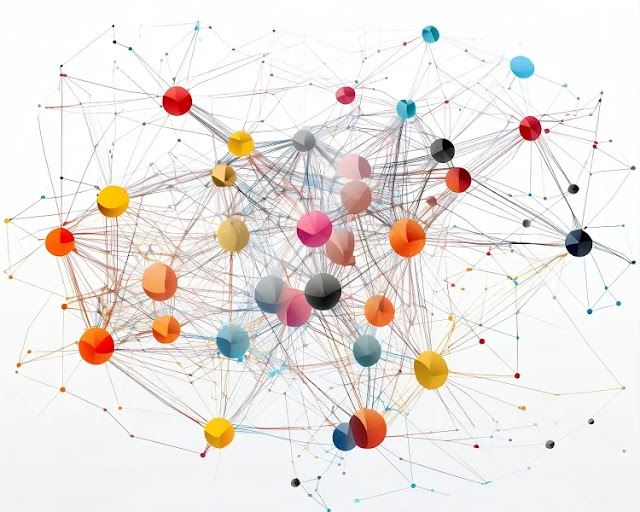Does Money Buy Happiness?
Economy. Money. Inflation. All these terms have become the pivotal point in our political and media discussions. They indeed influence one’s life greatly, when we have limited resources that too in such a competitive market; high inflation and an unstable economy certainly hits hard. But does it really matter as much as the media portrays it?
“Capitalism and capitalist media focus on ‘economy’, ‘economic indicators, and ‘demand’ as if these were the core society and in doing so ‘every ideal distinction between true and false, good and evil is destroyed in ‘order to establish a radical law of acquaintance”, Tom Butler wrote in his book while describing Jean Baudrillard’s ideology – a French sociologist, philosopher, and cultural theorist.
As a sociologist from the time when capitalism had just started, he was
surely thinking ahead of his time. Baudrillard’s famous book, Stimulation, and
Simulacra was an inspiration for the film The Matrix.
All over the news, wherever we may look these days, all programs and
discussions are focused on the economy, and more specifically, money as if that’s
the core of our stability and happiness as a society. But does ‘money’ really
buy happiness? Let’s see.
The World Happiness Report 2021 constituting 146 countries was launched
in December last year out of which Finland is ranked as the happiest state. The
researchers analyzed comprehensive Gallup polling data from 149 countries over
the past three years, specifically monitoring performance in six particular categories;
gross domestic product per capita, social support, healthy life expectancy,
freedom to make life choices, generosity of the general population, perceptions of
internal and external corruption levels.
Interestingly enough the top seven happiest countries in the world for
2021 were all Northern European countries. Whereas, not so surprisingly,
Pakistan secured the position among the lowest at 103 with 4.93 scores, lesser than
last year’s 5.69. Finland took top honors—for the fourth year in a row—with an
overall score of 7.842, in order followed by Denmark (7.620), Switzerland
(7.571), Iceland (7.554), the Netherlands (7.464), Norway (7.392), and Sweden
(7.363).
The United States of America is ranked at 19 positions, Russia at 74,
China at 82, Bangladesh at 99, India at 137, and predictably, Iran came at 116 with a score of 4.7 whereas Afghanistan comes lowest at 146 with a 2.53 score, close to last
year score.
USA, China, Japan, and Russia, despite being the ‘wealthy’ nations with
higher economic growth and better GDPs, Finland topped the ranking with a visible
difference. Surprisingly, the nations with rather ‘weaker’ economies than the
standard are mostly seen topping the charts and among the top ten rankings.
Does that indicate money does not buy happiness?
A mountain of evidence shows that, on average, wealthier people are happier. But making lots of money will not inevitably boost your happiness. How you spend, save, and think about money shapes how much joy you get from it.
The reason for unhappiness can also be another fact that people tend to
isolate themselves from others when they are thinking about money. A researcher
at the University of Minnesota did a series of nine experiments that
demonstrated that money makes people want to be free of dependents and
dependency. Reminded of money, participants preferred to:
- Play and work alone
- Put more physical distance between themselves and a new
acquaintance.
- Were, in general, less helpful to others
Ed Diener, a researcher who has spent over 30 years studying wellbeing,
postulates that a higher income may mean more work, less leisure time, and fewer
strong social connections. In other words, the benefits of having more
money might be offset by the sacrifices people are making in other aspects of
well-being. So while money can give us more control over our time, the
fact is that most of us don’t use the money to buy more free time or fun
activities with friends and family.
Another fact is that with money we can buy a lot of good things that may
bring us pleasure, but the happiness of acquiring goods is always transitory—it
wears off. For example, we might be really excited to buy a bigger car, but
over time, we take the car for granted. Moreover, we are still committed to
monthly car payments, which can restrict our options for fun
activities--vacations and dinners out, for example.
Worrying about money clearly impacts our well-being in major ways, and in
that struggle, it is difficult to see beyond the needs of the day. But if we can
take a moment, we can recognize that we still have ways to enhance our
wellbeing: we have some choices about how we spend both money and
time. And we can see the truth of what might initially seem trite:
that most of the important pleasures in life cannot be bought. What
really brings us satisfaction in life is relationships, purpose, meaning, and connection
to nature. If we can remember that, we can find ways to enhance our well-being.
Another experiment and probably the world’s longest and ongoing experiment studying
the reasons for happiness in humans support this argument as well while
emphasizing the ‘relationships’ a bit more. The researchers demonstrate that
relationships, although being the most complex to manage, gives us the most
happiness and stability.
Coming back to the World Happiness Report 2021, the writers also credited
the citizens of Finland's strong feelings of communal support and mutual trust
as the core reason for their emotional stability. The citizens, they mentioned,
felt strongly that they were free to make their own choices, and showed minimal
suspicion of government corruption. Both of these factors contribute
effectively to overall happiness and well-being.
Obviously, the research can have its own limitations, but at least it
provides us a general picture to help us develop a clear understanding of how
and what actually matters for individual as well as social well being.
%20-%20Money,%20Time,%20and%20Vacation%20Graphic%20-%20JPEG%20-%202-27-2020.webp)


Comments
Post a Comment